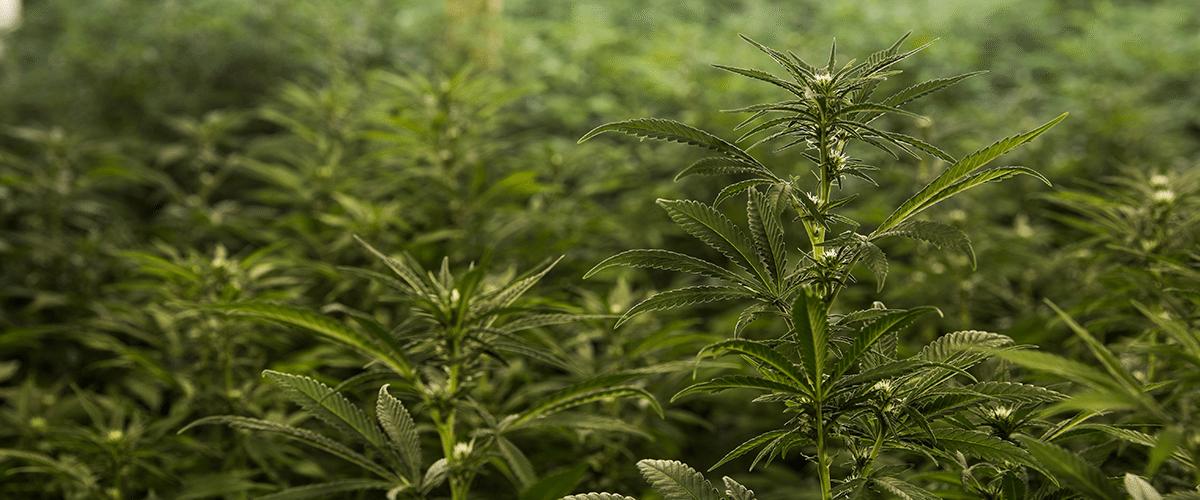[vc_row][vc_column][vc_column_text]
Myth #1: Marijuana Legalization Encourages Teen Use
The most common concern surrounding the legalization of marijuana is its potential impact on teens. Ending prohibition serves as an endorsement for young people to use cannabis, many opponents claim. Time and time again, however, studies have shown there to be no correlation between the passing of marijuana laws and an increase in teen use.
Not only has legalization been found to not increase teen cannabis use, the loosening of laws doesn’t make it any easier for teens to access marijuana. Studies even indicate that adult use legalization doesn’t influence teens’ attitudes toward marijuana or increase their risk of developing substance abuse problems.
Research does show that the loosening of marijuana laws does cause an uptick in adult use, but the trend for more to use cannabis doesn’t apply to teens. In fact, one study found that over the past 12 years, use among adults increased while use among teens dropped.
The concern over marijuana laws boosting teen cannabis use has been shown to be baseless.
Myth #2: Legalizing Marijuana Leads to an Increase in Crime
Another common misconception of marijuana legalization is that it causes an increase in crime. By legalizing cannabis, however, crime rates inevitably drop, as there is no longer a punishment for small possession of marijuana. The drop in arrests and charges following legalization was apparent in Washington D.C. In the year following legalization, possession arrests decreased 98 percent and arrests on any marijuana-related charge dropped by 85 percent.
This downward trend in crime following legalization also extends, however, to crimes unrelated to cannabis. For example, according to a study by the Drug Policy Alliance, the overall crime rate in Colorado dropped in the first 11 months after the first retail marijuana stores opened their doors in 2014. Violent crime throughout the state fell 2.2 percent, and in Denver burglaries and overall property crime dropped by 9.5 percent and 8.9 percent, respectively. Another study examining the impact of medical marijuana legalization nationwide derived similar conclusions, with crime decreasing in states following the passing of medicinal cannabis laws.[/vc_column_text][/vc_column][/vc_row][vc_row][vc_column][vc_single_image image=”17320″ img_size=”1200×250″ onclick=”custom_link” link=”https://www.medicalmarijuanainc.com/majority-americans-believe-not-worth-cost-enforce-marijuana-prohibition-poll-finds/”][/vc_column][/vc_row][vc_row][vc_column][vc_column_text]
Myth #3: Legalizing Marijuana Leads to More DUI’s
With marijuana’s psychoactive effects, opponents of legalization claim that allowing people to use cannabis will cause a bump in incidents of driving under the influence. While it’s true that large doses of marijuana can affect psychomotor performance and perception, research from states that have legalized marijuana have shown this concern to be unwarranted.
The Drug Policy Alliance study found that traffic fatalities in Colorado in the 11 months following the beginning of recreational marijuana sales dropped by 3 percent compared to the same period in the year prior. A 2013 study published in The Journal of Law & Economics had similar conclusions, as marijuana legalization was associated with sharp decreases in alcohol consumption and traffic fatalities. Most recently, a study by researchers from Colby College found a fall in DUI’s in states with medical marijuana laws.
Myth #4: Marijuana Legalization Encourages the Use of More Serious Drugs
Opponents concerned that marijuana legalization will cause an increase in the number of people that eventually move onto more dangerous drugs need not worry. A report from the National Institute on Drug Abuse concluded that, “the majority of people who use marijuana do not go on to use other, ‘harder’ substances.” A report from the Institute of Medicine also found no evidence that marijuana use is linked to the eventual use of other illicit drugs. Even U.S. Attorney General Loretta Lynch recently acknowledged that marijuana is not a gateway drug.
On the contrary, research indicates that cannabis is beneficial for the treatment of addiction. Marijuana has shown it can be used to reduce the severity of opioid or heroin withdrawals and to curb the cravings for alcohol. It can also help addicts in their road to recovery by lowering insomnia and anxiety.
Get more information on the growth of the cannabis industry by following our news feed. [/vc_column_text][/vc_column][/vc_row][vc_row][vc_column][vc_single_image image=”17843″ img_size=”1200×250″ onclick=”custom_link” link=”https://www.medicalmarijuanainc.com/medical-marijuana-can-curb-opioid-use-study-indicates/”][/vc_column][/vc_row]






